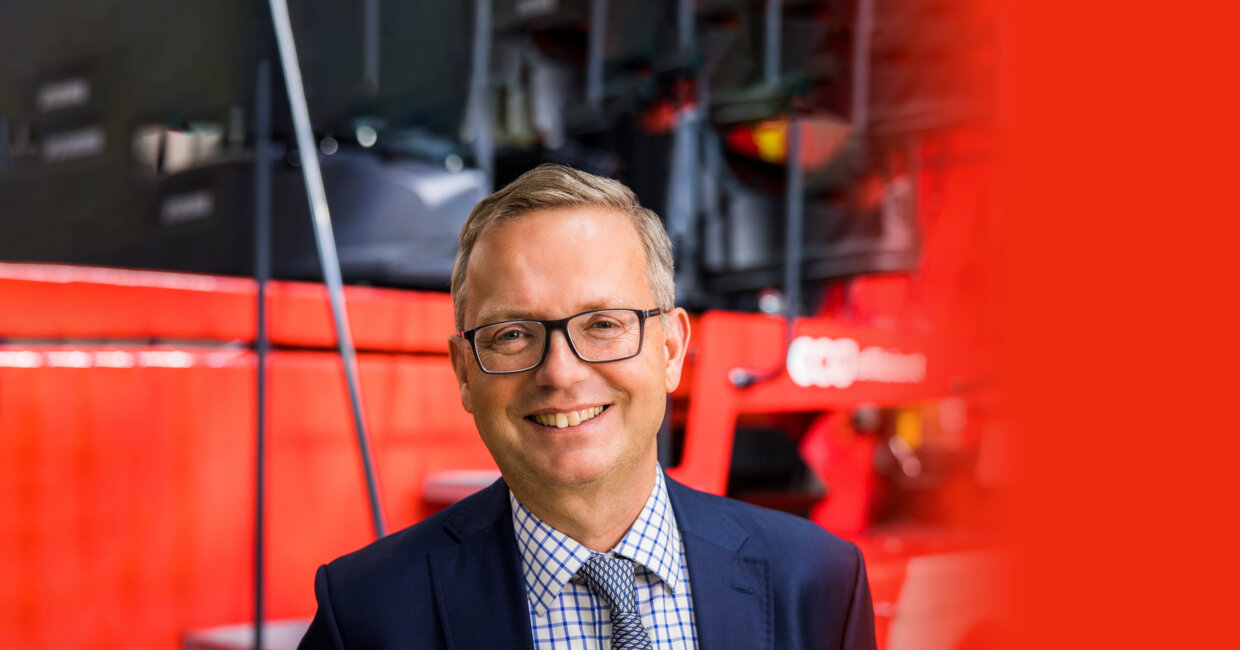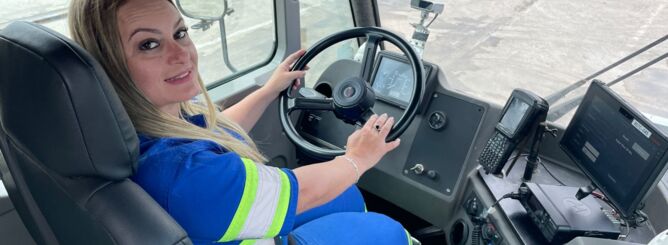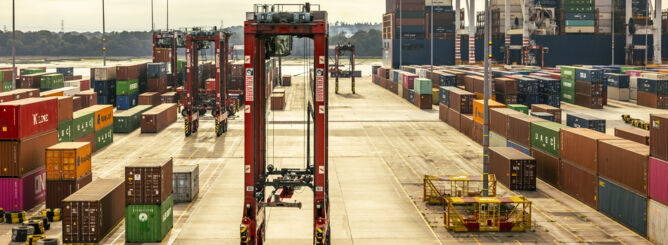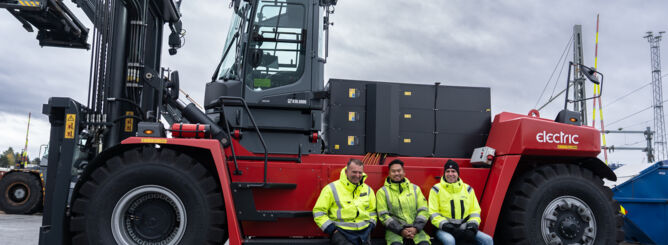How can we help our customers perform in a sustainable way
Despite disruptions in supply chains and uncertainties in global politics, Kalmar is growing strongly.
Starting this July, I have had the opportunity to take on the role of President at Kalmar, and it has been incredibly inspiring to see the confidence our customers worldwide have in our solutions. If there's one thing that summarises Kalmar today, it is that we have the vision and capability to make global supply chains and heavy material handling more sustainable, both today and in the future. This really is what inspires all our 5,000 employees, plus countless channel partners and dealers, every day at our jobs.
Over the last year, we've made some changes in our direction as a company, focusing more intensely on our core products and services in container terminals, distribution centres and various industrial applications. Moving cargo always requires a physical effort, and in the past this was accomplished with diesel and hydraulic solutions, with obvious consequences for the carbon footprint of the operation. At Kalmar, we are now at the forefront of electrifying all of these moves, following a tradition of innovation that reaches all the way to the first electric forklifts of the 1980s.
Innovation is at the core of everything we do, and the electrification of our equipment also opens the way to robotic solutions that help address other significant industry challenges, including driver shortages and safety. Our customers clearly appreciate our investments in this field, as we see demand for our products growing across all segments. In particular, we have been very happy to see strong interest in our recently announced all-electric portfolio, which shows that these kinds of solutions are very much in demand in our markets. In the meantime, our hybrid straddle carriers are helping operators improve the eco-efficiency of their horizontal container transportation. To date, we have sold over 500 hybrid units globally, which translates to over 400,000 tonnes of CO2 reductions over the lifecycle of the equipment compared to diesel alternatives. To put this in perspective, the CO2 reduction is equivalent to taking 174,000 cars off the road for a year.
A key concept that we have introduced into our internal and customer discussions is circularity. Eco-efficiency is not just about electrifying machines. It can also encompass saving materials, resources and energy by remanufacturing used equipment, so we want to make sure that any components or subassemblies that still are perfectly usable are not wasted in the process of modernising fleets and equipment. Our customers want not only the highest possible reliability, but also the longest productive lifespan for their equipment fleets, and we are there to help them accomplish this. With state-of-the-art connected services, we can provide data-driven maintenance services that are tailored to the individual terminal, helping them get the most out of their investment.
Sustainability is at the heart of our business, and it is equally important to all our stakeholders across the industry. Kalmar can deliver on this promise, not least because sustainability simply makes good business sense. People will continue to purchase goods from suppliers across the globe, but they want to do so with the knowledge that they are not significantly increasing their carbon footprint by doing so. We and our partners have a role to play in this story, ensuring that cargo and material handling operations move towards carbon neutrality as decisively as possible, and helping our customers along their own eco-efficiency journeys. We are there for you.
Michel van Roozendaal
President of Kalmar



